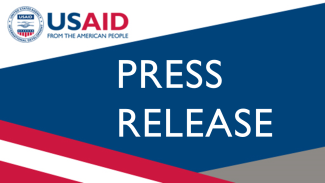The United States Agency for International Development (USAID) Senior Development Advisor Gary Robbins announced today the launch of a $450,000 (Tugrik 1.3 billion) USAID program to support the Government of Mongolia’s COVID-19 response.
Through its Meeting Targets and Maintaining Epidemic Control (EpiC) project, USAID, in partnership with FHI 360 and the Mongolian Ministry of Health (MOH), will hold the initial “Training of Trainers (ToT) course on Emergency Critical Care and COVID-19 Adult Case Management” for approximately 30 doctors and nurses involved in critical care management from rural or provincial hospitals throughout Mongolia. This training course was developed by the University of California San Francisco (UCSF) and will be led by Dr. Lundy Campbell, an anesthesiologist and Clinical Professor at UCSF.
“The U.S. government commends the Government of Mongolia for taking decisive action to stop the spread of the virus. In the fight against COVID-19, the U.S. Government stands with Mongolia and other partners around the world,” said USAID’s Mr. Robbins.
With this additional commitment, the United States has provided almost $4 million (11 billion Tugrik) to help Mongolia respond to the COVID-19 outbreak. Through this assistance, USAID is focused on helping to strengthen Mongolia’s own ability to fight the disease and to support the following priority areas: infection prevention and control; preparing laboratory systems for large-scale testing; and communicating with the public on steps they can take to prevent and respond to the spread of the virus.
The United States has been the world’s largest provider of assistance in public health. Over the past two decades, the United States has provided more than $140 billion in global health assistance. This includes being the single largest donor to COVAX, the COVID-19 Vaccine Global Access initiative with an initial pledge of $2 billion—out of a total planned $4 billion—to support the purchase and delivery of COVID-19 vaccines to 92 countries, including Mongolia.

